 Your new post is loading...
 Your new post is loading...

|
Scooped by
Gust MEES
November 20, 2018 10:37 AM
|
November 17, 2018
The vast majority of the AI advancements and applications you hear about refer to a category of algorithms known as machine learning. (For more background on AI, check out our first flowchart here.)
Recommended for You
One of the fathers of AI is worried about its future
The kilogram is being redefined as a fundamental constant, not just a chunk of metal
The US military is testing stratospheric balloons that ride the wind so they never have to come down
The rare form of machine learning that can spot hackers who have already broken in
Machine learning, meet quantum computing
Machine-learning algorithms use statistics to find patterns in massive* amounts of data. And data, here, encompasses a lot of things—numbers, words, images, clicks, what have you. If it can be digitally stored, it can be fed into a machine-learning algorithm.
Machine learning is the process that powers many of the services we use today—recommendation systems like those on Netflix, YouTube, and Spotify; search engines like Google and Baidu; social-media feeds like Facebook and Twitter; voice assistants like Siri and Alexa. The list goes on.
In all of these instances, each platform is collecting as much data about you as possible—what genres you like watching, what links you are clicking, which statuses you are reacting to—and using machine learning to make a highly educated guess about what you might want next. Or, in the case of a voice assistant, about which words match best with the funny sounds coming out of your mouth.
Frankly, this process is quite basic: find the pattern, apply the pattern. But it pretty much runs the world. That’s in big part thanks to an invention in 1986, courtesy of Geoffrey Hinton, today known as the father of deep learning. Learn more / En savoir plus / Mehr erfahren: https://www.scoop.it/t/21st-century-learning-and-teaching/?&tag=machine+learning

|
Scooped by
Gust MEES
October 31, 2017 1:57 PM
|

|
Scooped by
Gust MEES
October 7, 2015 6:17 PM
|
CAMBRIDGE, Mass. (AP) — The Massachusetts Institute of Technology has offered free online courses for the last four years with one major downside: They didn't count toward a degree. That's about to change.
In a pilot project announced Wednesday, students will be able to take a semester of free online courses in one of MIT's graduate programs and then, if they pay a "modest fee" of about $1,500 and pass an exam, they will earn a MicroMaster's credential, the school said.
The new credential represents half of the university's one-year master's degree program in supply chain management. As part of the pilot project, students who perform well in the online half can take an exam to apply for the second semester on campus. Those who get in would pay $33,000, about half the cost of the yearlong program.
"Anyone who wants to be here now has a shot to be here," MIT President L. Rafael Reif said. "They have a chance to prove in advance that they can do the work."

|
Scooped by
Gust MEES
August 18, 2015 2:59 PM
|

|
Scooped by
Gust MEES
July 29, 2015 8:20 PM
|
“Your physical ability changes over your lifetime. At first you can’t do much,” said Joshua Hartshorne, a postdoctoral fellow at the Massachusetts Institute of Technology and the study’s lead author. From infancy on, we get better at walking, jumping, climbing and running. But in our early 20s our physical abilities begin to decline, he said. Is such waxing and waning also true for mental ability? “There are two competing ideas,” he added. “As you get older you’re slowing down, and as you get older you’re getting wiser.”

|
Scooped by
Gust MEES
January 30, 2015 9:23 AM
|

|
Rescooped by
Gust MEES
from Social Media and its influence
May 26, 2013 12:47 PM
|
The MIT Center for Collective Intelligence brings together faculty from across MIT to conduct research on how new communications technologies are changing they way people work together.
Via Dr. Susan Bainbridge, Gust MEES

|
Scooped by
Gust MEES
March 17, 2013 11:12 AM
|
Education of its citizens is society’s highest ambition. Digital education is changing the landscape with powerful technologies that extend learning to everyone, everywhere. It’s changing the future of the classroom and creating a crisis for teachers, schools, and the trillion-dollar business of education.

|
Scooped by
Gust MEES
May 3, 2012 2:55 PM
|

|
Scooped by
Gust MEES
February 19, 2012 11:41 AM
|
MITx will offer a portfolio of MIT courses for free to a virtual community of learners around the world. It will also enhance the educational experience of its on-campus students, offering them online tools that supplement and enrich their classroom and laboratory experiences. The first MITx course, 6.002x (Circuits and Electronics), will be launched in an experimental prototype form. Watch this space for further upcoming courses, which will become available in Fall 2012.
“MIT has long believed that anyone in the world with the motivation and ability to engage MIT coursework should have the opportunity to attain the best MIT-based educational experience that Internet technology enables. OpenCourseWare’s great success signals high demand for MIT’s course content and propels us to advance beyond making content available. MIT now aspires to develop new approaches to online teaching.” said MIT President Susan Hockfield
Via Peter John Baskerville

|
Scooped by
Gust MEES
January 9, 2012 7:39 AM
|
The Massachusetts Institute of Technology recently hosted a workshop on science, technology, engineering, and math (STEM) education that included a demonstration of a university project to create STEM focused videos that can be freely used in high...

|
Scooped by
Gust MEES
January 2, 2012 8:28 AM
|
The Massachusetts Institute of Technology (M.I.T.) will announce on Monday that they intend to launch an online learning initiative called M.I.T.x,which will offer the online teaching of M.I.T. courses free of charge to anyone in the world.
|

|
Scooped by
Gust MEES
July 1, 2018 3:31 PM
|

|
Scooped by
Gust MEES
May 19, 2016 5:53 PM
|

|
Scooped by
Gust MEES
August 18, 2015 3:07 PM
|

|
Scooped by
Gust MEES
August 18, 2015 2:28 PM
|
For latest news and events see: MIT Connection Science:
http://connection.mit.edu/
How can we create organizations and governments that are cooperative, productive, and creative? These are the questions of social physics, and they are especially important right now, because of global competition, environmental challenges, and government failure.
The engine that drives social physics is big data: the newly ubiquitous digital data that is becoming available about all aspects of human life. By using these data to build a predictive, computational theory of human behavior we can hope to engineer better social systems.
Learn more / En savoir plus / Mehr erfahren:
http://www.scoop.it/t/21st-century-learning-and-teaching/?tag=Social+Physics

|
Scooped by
Gust MEES
January 30, 2015 3:32 PM
|

|
Scooped by
Gust MEES
June 2, 2013 8:15 AM
|
This fall, hackers from all over the world will gather at MIT for a hackathon like you've never seen before. 36 hours, hundreds of hackers, thousands of dollars in prizes. You won't want to miss it.

|
Scooped by
Gust MEES
April 5, 2013 9:34 AM
|
Bruce Schneier says “we as a society are heading down a dangerous path”

|
Scooped by
Gust MEES
November 10, 2012 10:28 AM
|
How does MIT approach innovation in education technology? The school has a set of groups that you should know about.

|
Scooped by
Gust MEES
February 23, 2012 11:21 AM
|
Since MIT’s Lifelong Kindergarten group released Scratch in 2007, kids ages 8 to 13 have built more than 2.2 million animations, games, music, videos and stories using the kid-friendly programming language. Scratch allows kids to snap together graphical blocks of instructions, like Lego bricks, to control sprites—the movable objects that perform actions. Sprites can dance, sing, run and talk.

|
Scooped by
Gust MEES
February 13, 2012 8:40 AM
|
Massachusetts Institute of Technology, one of the world's top universities, has revealed its first fully automated, accredited course which can be studied without charge.

|
Scooped by
Gust MEES
January 9, 2012 7:44 AM
|
MIT Launches Online Learning Initiative
MIT has announced the launch of an online learning initiative...

|
Scooped by
Gust MEES
January 2, 2012 10:26 AM
|
'MITx' will offer courses online and make online learning tools freely available. MIT today announced the launch of an online learning initiative internally called “MITx.” MITx will offer a portfolio of MIT courses through an online interactive learning platform that will:
organize and present course material to enable students to learn at their own pace
feature interactivity, online laboratories and student-to-student communication
allow for the individual assessment of any student’s work and allow students who demonstrate their mastery of subjects to earn a certificate of completion awarded by MITx
operate on an open-source, scalable software infrastructure in order to make it continuously improving and readily available to other educational institutions. GM: ===> This is nearly unbelievable and THAT Innovation in Education! <=== Congratulations MIT for this step to the future of Education!
|



 Your new post is loading...
Your new post is loading...

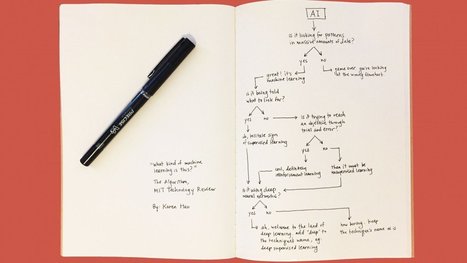


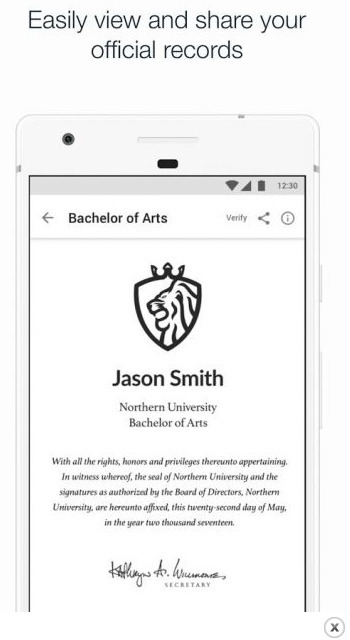
















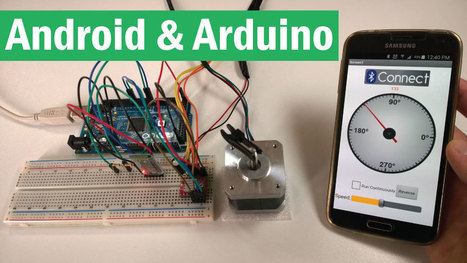





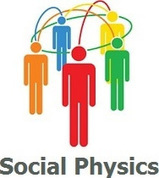

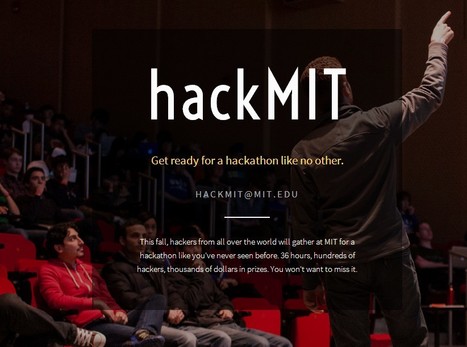

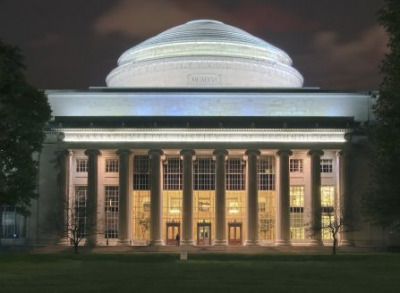


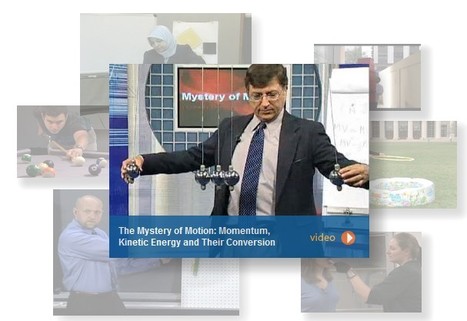







November 17, 2018
The vast majority of the AI advancements and applications you hear about refer to a category of algorithms known as machine learning. (For more background on AI, check out our first flowchart here.)
Recommended for You
One of the fathers of AI is worried about its future
The kilogram is being redefined as a fundamental constant, not just a chunk of metal
The US military is testing stratospheric balloons that ride the wind so they never have to come down
The rare form of machine learning that can spot hackers who have already broken in
Machine learning, meet quantum computing
Machine-learning algorithms use statistics to find patterns in massive* amounts of data. And data, here, encompasses a lot of things—numbers, words, images, clicks, what have you. If it can be digitally stored, it can be fed into a machine-learning algorithm.
Machine learning is the process that powers many of the services we use today—recommendation systems like those on Netflix, YouTube, and Spotify; search engines like Google and Baidu; social-media feeds like Facebook and Twitter; voice assistants like Siri and Alexa. The list goes on.
In all of these instances, each platform is collecting as much data about you as possible—what genres you like watching, what links you are clicking, which statuses you are reacting to—and using machine learning to make a highly educated guess about what you might want next. Or, in the case of a voice assistant, about which words match best with the funny sounds coming out of your mouth.
Frankly, this process is quite basic: find the pattern, apply the pattern. But it pretty much runs the world. That’s in big part thanks to an invention in 1986, courtesy of Geoffrey Hinton, today known as the father of deep learning.
Learn more / En savoir plus / Mehr erfahren:
https://www.scoop.it/t/21st-century-learning-and-teaching/?&tag=machine+learning